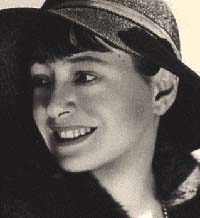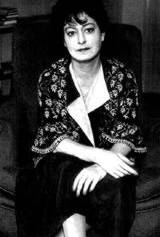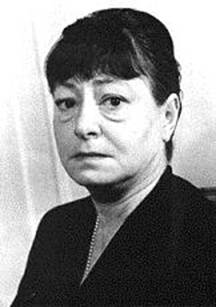The Fabulous Mrs. Parker
 There ain't a much more discouraging thing for a high school English teacher than to share a fabulous piece of literature with students, only to be met with stares, yawns, and befuddlement. Dirty jokes from Shakespeare, eternal truth from Homer, vicious social satire from Twain, all soaring over their heads like a private plane wandering in restricted air space. Talk about casting pearls before swine.
There ain't a much more discouraging thing for a high school English teacher than to share a fabulous piece of literature with students, only to be met with stares, yawns, and befuddlement. Dirty jokes from Shakespeare, eternal truth from Homer, vicious social satire from Twain, all soaring over their heads like a private plane wandering in restricted air space. Talk about casting pearls before swine.OK…to be fair, I didn’t fall in love with literature until my late 20s. I went to high school in the 70s and if my teacher didn't feel like teaching that day, we walked across the street to the park and wrote in our journals (wearing our daily uniform: jeans and moccasins). When I realized how much I missed, I went back to school and finally did "English" stuff like, you know, study a poem's structure and content from beginning to end, examine the symbols in a short story, read a novel all the way through. It blew my mind. And I wanted to be a teacher so I could help blow theirs, too. But there is a big gap between 17 and 28 and I quickly learned that I could lead them to water and if they decided to do a cannonball in it rather than drink, well, at least they got wet.
Upon being asked to use the word "horticulture" in a sentence,
Mrs. Parker responded,
"You can lead a whore to culture, but you can't make her think."
 So, all of this is a long damn way to tell you about Dorothy Parker. Even at the end of the 20th century, I had to stray from the plethora of male writers and find female voices to balance their perspectives. That's when I wandered into the fabulous Mrs. Parker. What a woman. When admiring "the best" in any field, it's too easy to overlook their humanity and place them atop an unreachable pedestal. But Dorothy Parker won't hear of it. Even the brilliance of her writing doesn't blind you to her frailty. Affairs with married men, heavy drinking, marriage(s) to a homosexual, multiple suicide attempts; she lived it all and she filled pages with it. If you think the 20s were always roaring, try reading "The Big Blonde" and find out what it really meant to be a woman in America then: dependent, distorted, and despairing. She suffered through the bullshit of Hollywood, was an unabashed leftist, opposed Nazism and Fascism, reported on the Spanish Civil War, and was blacklisted during the McCarthy era. Toward the end of her life, she lived in hotels and carried little dogs around that crapped wherever they wanted and when she died, she left her estate to Martin Luther King, Jr. Now, THAT is an interesting life story.
So, all of this is a long damn way to tell you about Dorothy Parker. Even at the end of the 20th century, I had to stray from the plethora of male writers and find female voices to balance their perspectives. That's when I wandered into the fabulous Mrs. Parker. What a woman. When admiring "the best" in any field, it's too easy to overlook their humanity and place them atop an unreachable pedestal. But Dorothy Parker won't hear of it. Even the brilliance of her writing doesn't blind you to her frailty. Affairs with married men, heavy drinking, marriage(s) to a homosexual, multiple suicide attempts; she lived it all and she filled pages with it. If you think the 20s were always roaring, try reading "The Big Blonde" and find out what it really meant to be a woman in America then: dependent, distorted, and despairing. She suffered through the bullshit of Hollywood, was an unabashed leftist, opposed Nazism and Fascism, reported on the Spanish Civil War, and was blacklisted during the McCarthy era. Toward the end of her life, she lived in hotels and carried little dogs around that crapped wherever they wanted and when she died, she left her estate to Martin Luther King, Jr. Now, THAT is an interesting life story.Razors pain you;
Rivers are damp;
Acids stain you;
And drugs cause cramp.
Guns aren't lawful;
Nooses give;
Gas smell awful;
You might as well live.
Her monologue, "The Waltz," depicts the efforts of the narrator to remain charming while she dances with a clod -- so I thought my high school juniors would love it. And some of them did -- a few chuckles here and there, even a guffaw on a good day. And I think at least the girls understood the efforts of a woman struggling to stay cheerful for a man while suffering on the inside. But no matter how hard we tried to get into the material, their life experience just didn't quite get them where they needed to be to enjoy the story, let alone the exquisite craft of her perfect prose. Let's face it…not many kids from a mid-sized Eastern Washington town often hear people talk like Dorothy Parker and her pals at the Algonquin Round Table. Until they hear more voices -- in theater, film, books, and life -- they won't truly fathom the exactness of her tone and wit. Hopefully, we shared that first whisper together.
At girls who wear glasses
(I gotta add, it used to absolutely PISS me off when I would read in teacher magazines about fabulously successful lesson plans executed flawlessly by brilliant educators in classrooms full of incredibly observant children. I wasn't the best teacher in the world, but I wasn't the worst either, and sometimes the thing you want to turn them on to the most just falls flat. Period.)
Brevity is the soul of lingerie
 Regardless of the mixed success of those years of teaching, I still remember them happily. Even now, when I get excited about a new writer or story, I run through the mental exercise of figuring out the best way to share it with students. Then I realize I don't have to do that anymore. I can just sit and enjoy the story or excitement of a new author. So, I stepped back in time when I recently ordered the works of the fabulous Mrs. Parker on audio CD for my commute. Aaaaaaahhhh…. It's a selfish joy to sit and listen and not worry about who else "gets" it. She's unbelievable: the subtlety and craft of her short story "The Game," theater criticism that sounds like it was written yesterday, her hilarious monologue, "A Little One." They are absolute magic. I hope that at least one of my former students will enjoy her one day like I do. In the meantime, there's not much better company than the fabulous Mrs. Parker -- whether you are curled up in big stuffed chair, listening to a car stereo, or sitting in a classroom.
Regardless of the mixed success of those years of teaching, I still remember them happily. Even now, when I get excited about a new writer or story, I run through the mental exercise of figuring out the best way to share it with students. Then I realize I don't have to do that anymore. I can just sit and enjoy the story or excitement of a new author. So, I stepped back in time when I recently ordered the works of the fabulous Mrs. Parker on audio CD for my commute. Aaaaaaahhhh…. It's a selfish joy to sit and listen and not worry about who else "gets" it. She's unbelievable: the subtlety and craft of her short story "The Game," theater criticism that sounds like it was written yesterday, her hilarious monologue, "A Little One." They are absolute magic. I hope that at least one of my former students will enjoy her one day like I do. In the meantime, there's not much better company than the fabulous Mrs. Parker -- whether you are curled up in big stuffed chair, listening to a car stereo, or sitting in a classroom.Note: Mrs. Parker's collection of works is the 9th most popular in the Viking Portable Library Series.
On The Go books is sort of a "Net Flix" for audio CDs.




1 Comments:
Dorothy Parker has also been one of my favorite authors since college. No other writer I have experience has truly captured the feminist angst (although angst has now become I word I almost detest because of its association with a slacker mentality).
I first encountered Ms. Parker with a short story entitled "A Telephone Call." The story is an internal monologue of a woman waiting for a man to call. Her life is broken down into thirty-second increments which she uses to measure time until the phone rings. I think almost every woman has had thoughts such as these. I remember anxiously waiting by the phone for the boy du jour to call, praying that the phone would ring. I'm even embarrassed to say that the trend continued into my 20's.
"If he doesn't telephone me, I'll know God is angry with me. I'll count to five hundred by fives, and if he hasn't called me then, I will know God isn't going to help me, ever again. That will be the sign. Five, ten, fifteen, twenty, twenty-five, thirty, thirty-five, forty, forty-five, fifty, fifty-five... It was bad. I knew it was bad. All right, God, send me to hell."
Parker so eloquenty captures the drama and poignancy of a girl waiting for a boy to call in this story that I was immediately smitten.
Since then I have read anything I can get my hands on by the fabulous Ms. Parker and reread her complete story collection at least once per year.
On a related note, I've recently begun watching the show "The Gilmore Girls" and was amazed at the literary references strewn throughout the dialogue. This was a pleasant surprise from a show which seemed to be geared towards a teenage audience. The mystery was explained when I saw the name of the production company which produces the show: "Dorothy Parker Drank Here."
Post a Comment
<< Home